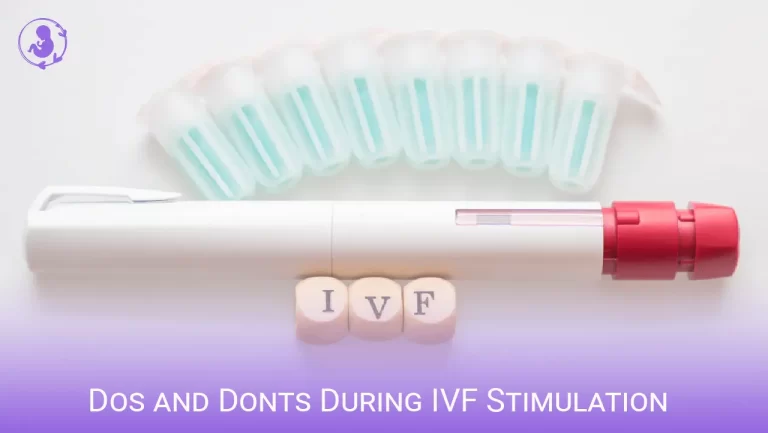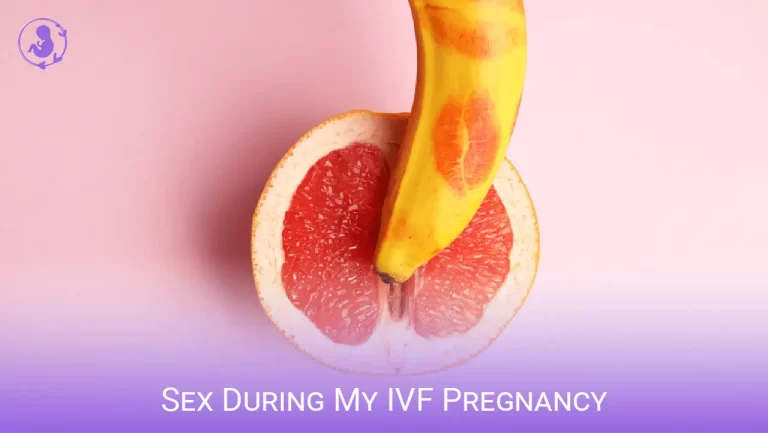Best Sleeping Position After IVF Pregnancy
Are you struggling to get a good night’s sleep after undergoing IVF? Well, you’re in luck! In this article, we’ll discuss the importance of sleep after IVF and provide recommendations for the best sleeping positions during pregnancy after embryo transfer.
Did you know that getting enough sleep, around 7-8 hours per night, can actually improve the success rates of IVF? Plus, finding the right sleeping position, like sleeping on your left side, can improve blood flow to the fetus and ensure a comfortable night’s rest.
So, let’s dive in and discover the best sleeping position after IVF pregnancy!

Importance of Sleep After IVF
Getting adequate sleep of 7-8 hours per night is recommended for you after an IVF procedure to improve your success rates. Sleep quality plays a crucial role in your overall health and well-being, as well as your fertility. Restful sleep is essential for hormone regulation and reproductive function.
To ensure a comfortable and restful sleep after IVF, it is important to find the right sleeping positions. Sleeping on your side, particularly the left side, is recommended as it improves blood flow to the fetus and uterus. Placing pillows for support can help maintain a comfortable position throughout the night. Using a cushion between your legs can provide relief for lower body pain.
It is best to avoid sleeping on your stomach after IVF, but if necessary, you can use a soft pillow under your stomach while lying on your side. Sleeping on your back is acceptable in the first trimester, but it may cause discomfort later on. To prevent sleeping on your back all night, you can use a wedge-shaped pillow for support.
Recommended Sleeping Positions After IVF
- Using a cushion between your legs can provide relief for lower body pain after IVF.
- When it comes to sleeping positions after embryo transfer, it is important to find comfortable positions that support the body.
- Side sleeping positions during pregnancy are often recommended, as they improve blood flow to the fetus and uterus.
- Placing pillows for support can also ensure a more comfortable sleep after IVF.
- Taking the time to rest and relax after embryo transfer is crucial for successful implantation.
- It is advised to take time off work and stay in bed to increase fertility and improve chances of successful implantation.
- Sleep plays a significant role in the success of embryo implantation, as adequate sleep of 7-8 hours per night improves success rates.
- So, make sure to prioritize rest and create a pleasant sleep environment.
Sleeping on Your Back
Sleeping on your back is acceptable in the first trimester of pregnancy, but it may cause discomfort later on. However, there are some benefits to sleeping on your back during pregnancy.
It can improve blood circulation and prevent swelling in your legs and feet. To properly support your body while sleeping on your back after IVF, you can use pillows to prop up your upper body and provide support to your uterus, vena cava, and intestines. A wedge-shaped pillow can also help prevent you from rolling onto your back throughout the night.
Keep in mind that sleeping on your back may lead to low blood pressure and backaches, so it’s important to listen to your body and adjust your sleeping position if you experience any discomfort. If you find it uncomfortable to sleep on your back, there are alternatives you can try.
Sleeping on your side, particularly the left side, can improve blood flow to the fetus and uterus. Placing a pillow between your knees can provide additional support and alleviate any lower body pain.
Remember that the role of sleep position in the success of IVF pregnancy is still not fully understood, so it’s best to consult with your fertility specialist to find the best sleeping position for your specific situation.
Tips for Better Sleep After IVF
To improve your sleep quality after IVF, it’s important to establish a regular sleeping schedule and create a soothing sleep environment. Here are some tips to help you get better sleep after IVF:
- Choose the right sleeping position: Sleeping on your side is the most comfortable position during pregnancy. It improves blood flow to the fetus and uterus. Placing a cushion between your legs can alleviate bottom body pain and align your spine for better support.
- Use pillow support: Place a pillow under your knees when sleeping on your back to relieve pressure on the lower back. You can also use pillows to support your body and ensure comfort throughout the night. Consider using a pregnancy cushion (U or C-shaped) during the second trimester for added support.
- Maintain a regular sleep schedule: Going to bed and waking up at the same time every day can help regulate your body’s sleep-wake cycle. This consistency promotes better sleep quality and overall well-being.
- Create a pleasant sleep environment: Make your bedroom a peaceful and relaxing space. Use blackout curtains to block out light, keep the room cool and quiet, and consider using relaxing scents or sounds to enhance your sleep environment. Practice relaxation techniques such as deep breathing or meditation before bed to calm your mind and prepare for sleep.
Specialists Opinion
Sleep plays a crucial role in the success of IVF procedures, and choosing the right sleeping position during pregnancy is essential.
After embryo transfer, it is important to prioritize rest. Taking a few days off work and staying in bed can increase the chances of successful embryo implantation. Sleeping on your back can also increase the success rate. However, it is recommended to avoid sleeping on your stomach, but if necessary, you can use a soft pillow under your stomach while lying on your side.
The best sleeping position after IVF for increased success rate is sleeping on your side. This position improves blood flow to the fetus and uterus, ensuring optimal support for pregnancy. Placing a cushion between your legs can alleviate lower body pain and provide additional comfort.
Read More On IVF






